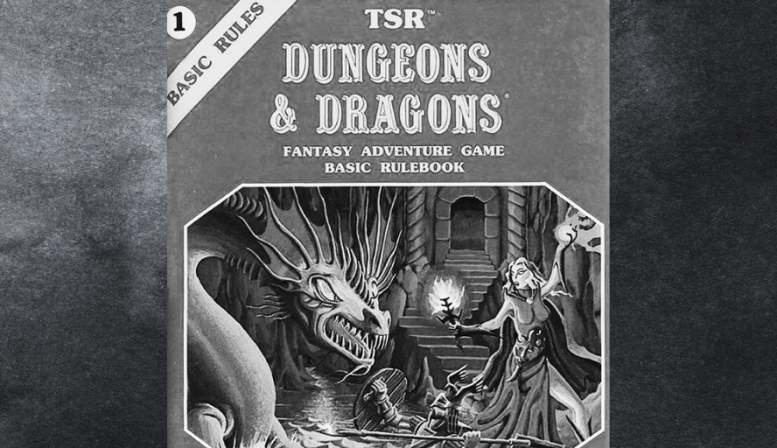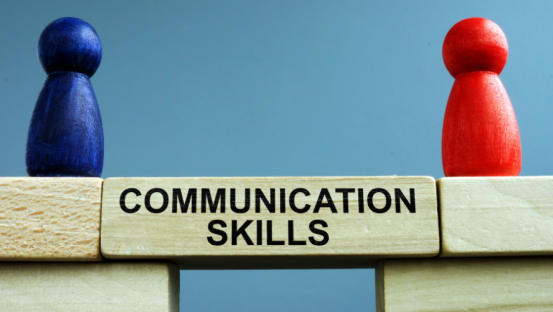What Dungeons & Dragons Can Teach You About Public Speaking

Dungeons & Dragons has undergone a resurgence in popularity in recent years, helped by its depiction in popular media such as Stranger Things. What was once considered to be the domain of geeks, nerds and social outcasts is now a part of popular culture.
In case you’ve somehow been living under a rock, Dungeons & Dragons is a fantasy role-playing game in which players set out on an adventure and are tasked with playing the parts of their characters along the way.
That doesn’t sound much like public speaking, so where exactly are the crossovers and what are the lessons that you can learn from? Let’s dive in and find out.

1. We choose our own path
A defining aspect of Dungeons & Dragons is that it provides a framework in which the players are free to forge their own path. They decide what actions to take, who to talk to, and what to say, and the Dungeon Master is tasked with interpreting that and keeping the story going. It’s a valuable reminder that we’re in charge of our own destinies, both in-game and in the real-world.
2. Sometimes we need to play a role
Dungeons & Dragons is a role-playing game, which means that we’re playing a role every time we play it. The same thing is often true when we’re on the public speaking circuit. Now, we’re not saying that you have to be someone that you’re not, but rather that you need to put your best foot forward and wear your professional hat. This might mean being more serious than usual or even just pretending to be an extrovert when your instinct is to be more introverted.
3. Monsters can be beaten
There’s a great quote by Neil Gaiman where he said, “Fairy tales are more than true, not because they tell us that dragons exist but because they tell us that dragons can be beaten.” Dungeons & Dragons does the exact same thing. This is relevant because there are all sorts of monsters out there, including the metaphorical. In your case, the monster that needs beating might be your own fear, holding you hostage and stopping you from taking to the stage.
4. Initiative is vital
In Dungeons & Dragons, players often find themselves rolling for initiative. In other words, the players will roll a dice to see who gets to take the first move. Winning initiative can mean the difference between life and death, and while taking initiative might not be quite that vital when it comes to the world of public speaking, it certainly helps if you’re able to use some initiative here and there.
5. People play by different rules
One of the challenges of Dungeons & Dragons is that different people play by different rules. That happens because there are a number of different editions, as well as the “homebrew” phenomenon in which people make rules of their own. The same thing happens out there in the world of work and public speaking. Everyone plays by their own set of rules, and it’s important for you to make sure that you understand what those rules are. The same is true when it comes to events. Every event is different, and each different event comes with its own set of expectations.
6. You need to know the dynamics of the group
Every Dungeons & Dragons game is different, and that’s partly because the dynamics change from group to group. If you’re playing with a bunch of more aggressive players, that can lead to you becoming more aggressive yourself, or it can also lead to you taking a back seat. The same is true of any group setting, and it’s important for you to be able to get a sense of the dynamics of any given group and to understand how you can function as a part of it.
7. There are different classes
Dungeons & Dragons characters have a variety of different classes, such as fighter, cleric, thief and mage. Each of these classes has its own special abilities, and they each require different skillsets to be best put to use. The same is true of public speakers. Some excel at keynote presentations, while others are at their best when they’re taking part in panel discussions. You’ll want to spend some time figuring out what your own class is and understanding how you can make the most of it.
8. Charisma is important
Charisma is one of the six major attributes that Dungeons & Dragons characters are assigned, and it has a pretty lousy reputation amongst players, who often see it as less important than more tangible metrics like strength and dexterity. But charisma is important when you want to win people over to your way of thinking, and that’s just as true on the public speaking circuit as it is in a game of D&D.
9. Experience helps you to level up
Like many role-playing games, Dungeons & Dragons uses an experience-based system to identify when it’s time for your character to level up. Once they’ve attained enough experience, they can move on to the next level and unlock new abilities. The same thing happens to us as public speakers. The more experience we get along the way, the faster we level up and the better we get at the work we do. And when we do level up, we can speak to larger audiences and do a better job of communication.
10. Sometimes it takes a little luck
With the best will in the world, there’s only so much that we can control. Luck always plays a role, whether we’re talking about the luck of the dice when rolling for initiative, or whether we’re talking about the luck that comes from being in the right place at the right time and meeting someone that we might not otherwise have met. Your goal as a public speaker should be to do the best you can with the elements that you can control and then to trust to luck to do the rest for you.
Conclusion
Now that you know our thoughts on what Dungeons & Dragons can teach us about public speaking, we want to hear from you. Have you ever played Dungeons & Dragons? And if so, what did you learn from it that you’ve been able to apply on the stage?
As always, we’d love to hear your thoughts and to keep the discussion going, so be sure to let us know what you think in the comments. You can also follow us on your favorite social networking sites for more. We’ll see you soon for another article!




